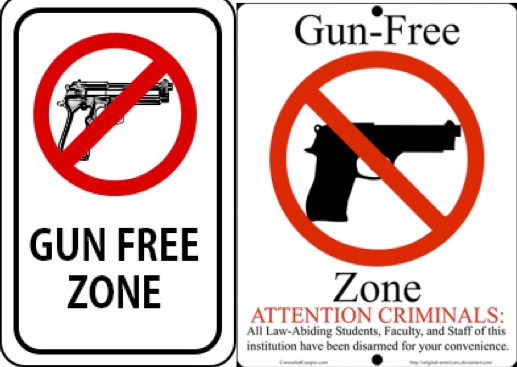 How can we have the necessary conversation? There is so much fear and anger; suspicion and mistrust.
How can we have the necessary conversation? There is so much fear and anger; suspicion and mistrust.
The demagogues of the left and the right are controlling our conversation, our ability to actually save lives. We need a better way.

Or buy a kit from Stop the Bleed
Stop the Bleed offers free classes at hospitals across the nation.
Homeland Security, fire and police departments, and others offer active shooter classes
Run, Hide, Fight videos are available on line
Most areas have training available for CPR and AED
The initial training is often about 3 hours. I'd suggest taking additional classes for at least a total of 15 hours of training. Check reviews; some places are better than others. If you have never handled a gun it's time to remove the mystery for yourself. You need to know what guns can do and not do if you are to be heard by people who own guns.

Both sides of the debate are into empty symbols. It's not only that they are ineffective -- they stop the needed conversation. To avoid insulting people you disagree with you will need to learn what shuts them down.
Focusing on the empty symbols does nothing useful while taking our attention away from what may be useful. For example, the "gun free zone" signs. Put one up and some will feel like they "won" and others that they "lost" - but no one who has thought it through will feel safer or be safer. Instead actually work on parish safety and security actions that might make us safer -- electrical wiring and safe storage on the one hand, greeters walking the grounds from time to time and being trained in Stop the Bleed, AED and CPR.
Help people work with the facts. Including those that support the other side. A news article today calling for more gun control made a point about the FBI data that only 13% of mass shootings (Jan 2009 - July 2015) took place in gun free zone public spaces. Mass shootings defined as an event when at least 4 people are killed by gun fire. Not mentioned in the article was the fact that a number of the larger scale shootings have been in such zones.
The church sometimes seems to get carried away with hearing itself talk. There's a shooting and bishops flock to the cameras. That won't stop.
For example:
- 42% live in a household with a gun
- Gun owners and non gun owners agree that children need to be talked with about gun safety; that guns should be kept in a locked place; that gun owners should take gun safety courses; that mentally ill and people on the no fly list should be stopped from having guns; and that background checks should include gun shows.
- 30% of adults own a gun and another 36% could see owning one in the future. About 70% have fired a gun. One in six gun owners have used the gun for self defense. Seven in ten owners have taken a safety course.
- 64% of Americans say that most people should be able to own a gun.
- Most Americans would tighten up gun control laws
- No one with a concealed carry permit has stopped a large mass shooting yet. There are incidents almost weekly where a person doing concealed carry has saved someone else's life.
If people are to have the needed conversation they need to have access to the facts. That may help ground the discussion in reality instead of illusions. People are going to have guns in this country. That's not going away anytime soon. Talk about how the Court's judgement on the 2nd Amendment is mistaken goes no where. You might begin with establishing ground upon which just about all will stand together -- schools should be safe places; the amount of gun violence is far too high; we share feelings of grief and horror after each of these large scale shootings.
- Where are the places that some agreement across lines may be possible? We will now set aside our perfect answers to the problem.
- In an active shooter situation it will take between 5 and 15 minutes before the first responders arrive (depending on where you live). Most of these shootings are over in three minutes. People with arterial bleeding can die before help arrives. What are your thoughts and feelings regarding someone in the congregation who was carrying a concealed gun and engaged the shooter? How prepared would the church be to render first aid in the time before help arrives?
- We'll read a report on a real case. The conversation will begin with -- what surprised you? what did you learn? What in the report suggests things we should do as a parish (if anything)?
- What shuts down the ability of people on both sides to hear one another? What are the trigger words and expressions? There was an article recently in the Federalist that included this sentence -- "Stop bickering, virtue-signaling, and trying to figure out conspiracy theories and details." How do the people on "my side" engage in this things?
- How can we talk with our children about these situations? A Newshour segment
- What about teachers with guns? Texas story CO story Detroit story Debate Sen. Chris Murphy & Education Secretary Betsy DeVos Giffords Law Center Educators take firearms training
- Then shift the conversation from "teachers" to "resource officers/security." Would it be okay for them to have concealed handguns? How about if they had to receive as much formal gun training as police officers (40 - 60 hours).?
You might take a look at Respect First, Then Gun Control by David Brooks. He offers a few ideas for such conversations. He mentions Better Angels, an organization working to reduce polarization and help people talk with one another.
If people are uninformed about how American democratic politics works -- Have a couple of classes on the basics. Use some examples -- The closest you can get at the moment may be the work of the Common Sense Coalition on immigration reform. The group has met in Senator Susan Collins office trying to find a solution to the DACA situation.
Do not manipulate ascetical practice to fit your political views. Let the practices remain accessible for all. So no “give up guns for Lent.” That’s no better than “learn to shoot for Lent."
Intercession and thanksgiving: The lives lost
If the Church is to speak prophetically in and to the political order, it must do so on the basis of sound theology and profound prayer as well as accurate data and careful analysis. Kenneth Leech
Finally, beloved, whatever is true, whatever is honourable, whatever is just, whatever is pure, whatever is pleasing, whatever is commendable, if there is any excellence and if there is anything worthy of praise, think about these things. Philippians 4:8
rag+